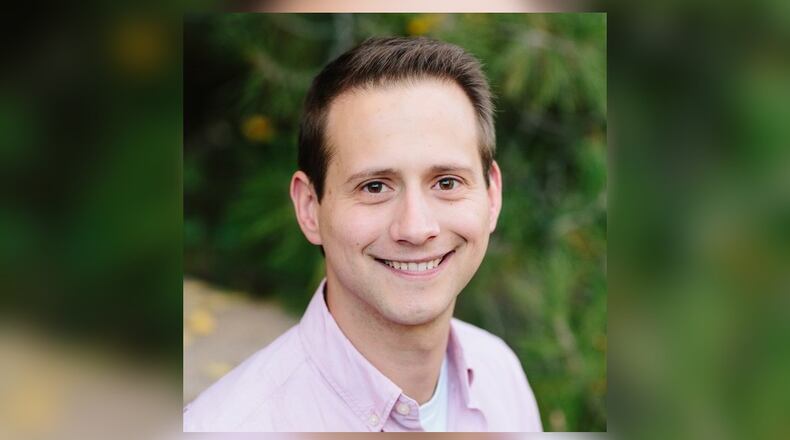“None of us got into this job to have a party,” said the 2008 Talawanda and 2012 Miami University graduate.
The computer science major, who has held a love for politics since his teenage years and campaigned in 2004 around Oxford for then-Democratic presidential candidate John Kerry, wanted to combine his work and personal passions.
Hodges, now of New Mexico, found himself working as a software engineer for a company contracted by the 2016 Hillary Clinton presidential campaign.
“I was essentially embedded with that campaign to build software with them,” he said. “Through that experience, I built plenty of connections in the political ecosystem.”
He was on the Clinton campaign for about two years but knew he wanted to work on a 2020 presidential campaign. Former vice president Joe Biden one of the candidates he wanted to work for, he said.
“As candidates were announcing their ambitions for 2020, I started to take stock of which candidates I would personally be interested in working with,” said Hodges. “There were many that were appealing to me.”
Dan Woods, the Biden campaign’s chief technology officer, hired Hodges. They worked closely on the Hillary Clinton campaign. Woods wrote on the blog site Medium.com when hired he needed a fully remote engineering director for the campaign. He hired Hodges, and wrote he has no doubt that Hodges’ “implementation of the role will be the prototype for every remote leader on a campaign in the future.”
“Campaign tech teams of the future are going to be remote-first and our execution on this strategy in 2020 is how we can expect the model to work in the future,” Woods wrote about his team that included Hodges leading a group of software engineers across four time zones.
Campaign opportunities are tied to the political calendar and with this presidential election wrapped up, so Hodges said he is looking at his next opportunity.
“There are plenty of organizations within the (political) ecosystem that I’m having conversations with that are meant to exist between election cycles,” Hodges said. “I don’t have any concrete plans yet, but I’m very much invested in staying in the political ecosystem if I can.”
For now, Hodges said he’s not planning to work on another presidential campaign, but that could change when the 2024 presidential election cycle approaches.
“A campaign, it’s a grueling environment. It’s a really awful environment unless you’re doing short-term,” he said. “Working 110 hours a week really wears you down.”
About the Author

